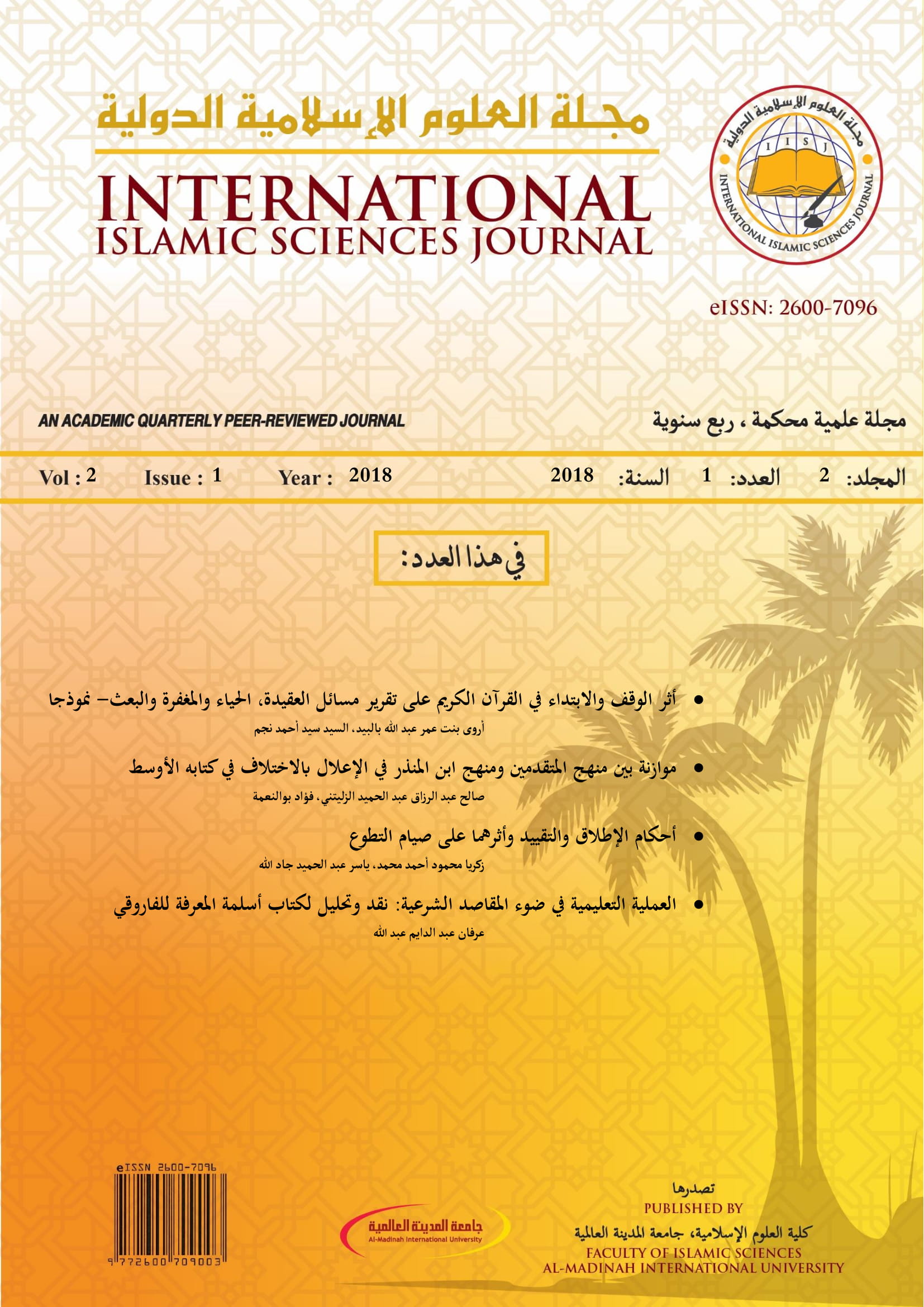أحكام الإطلاق والتقييد وأثرهما على صيام التطوع
##plugins.themes.bootstrap3.article.main##
الملخص
بحث في أحكام الإطلاق والتقييد
بعد التعديلات المطلوبة
##plugins.themes.bootstrap3.article.details##
كيفية الاقتباس
Mohamed, Z., & Abdelhamed, Y. (2018). أحكام الإطلاق والتقييد وأثرهما على صيام التطوع. مجلة العلوم الإسلامية الدولية, 2(1), 53 -84. https://doi.org/10.63226/iisj.v2i1.1187
القسم
الفقه وأصول الفقه

